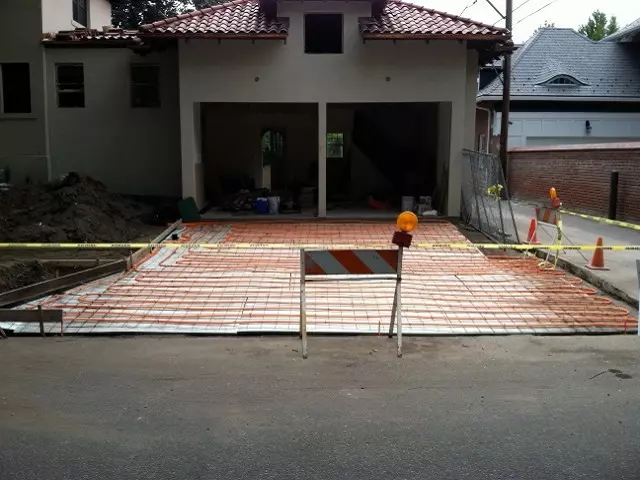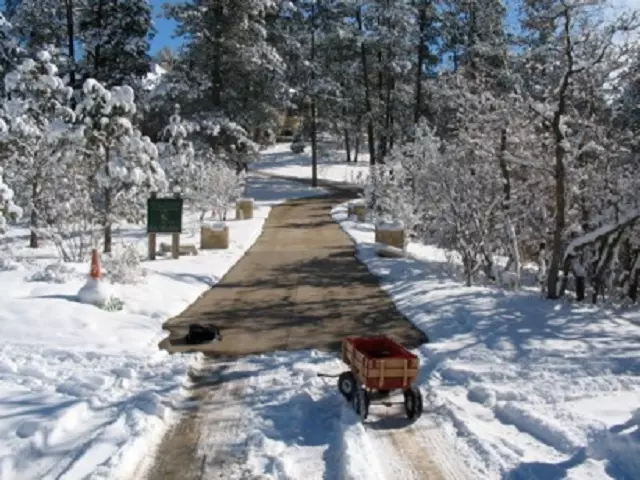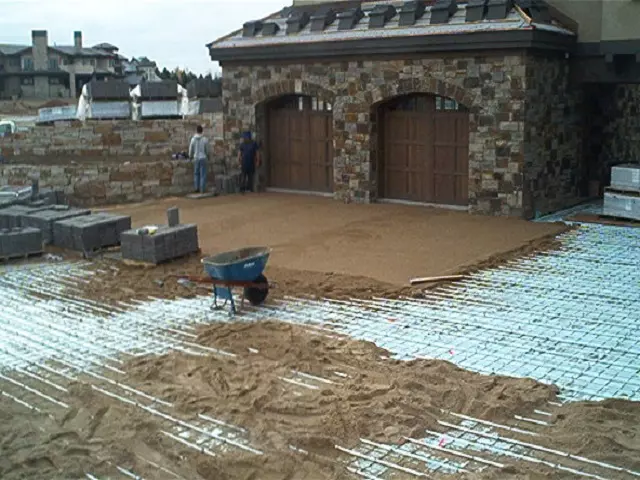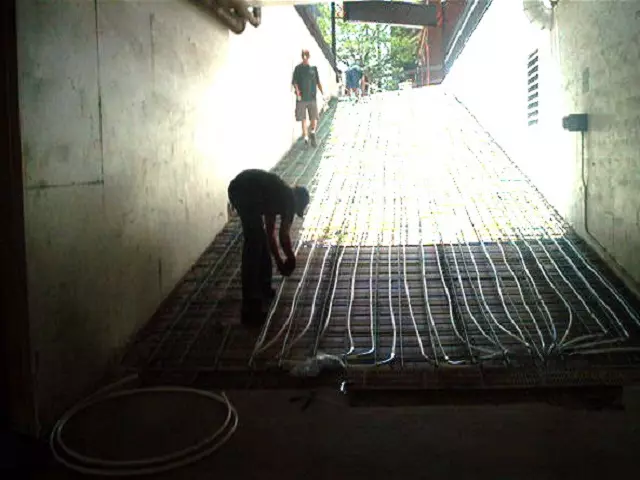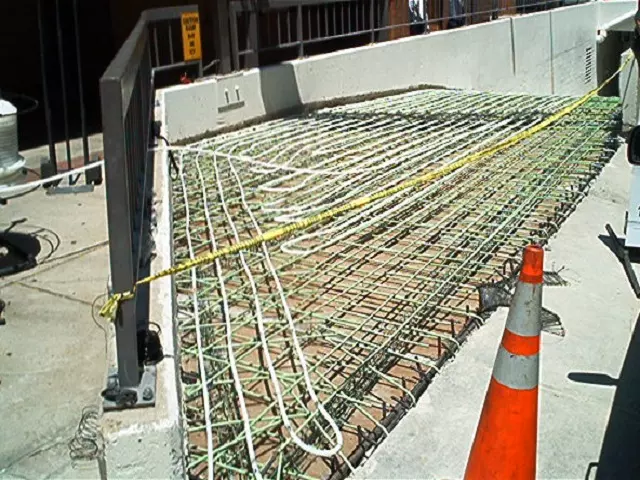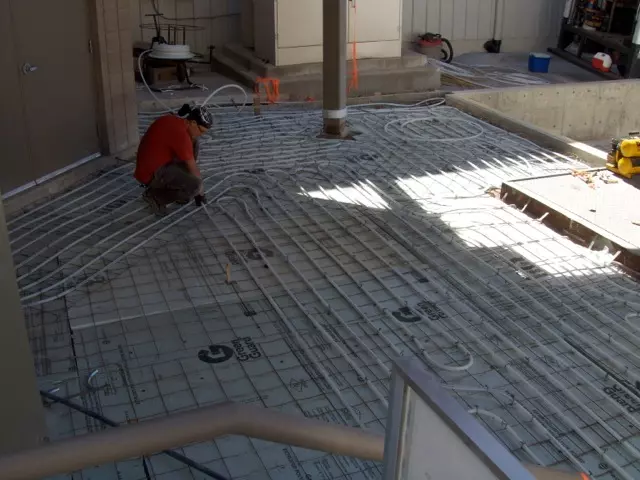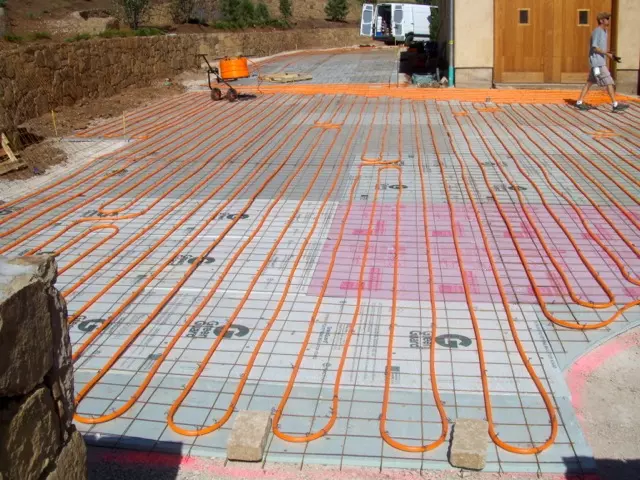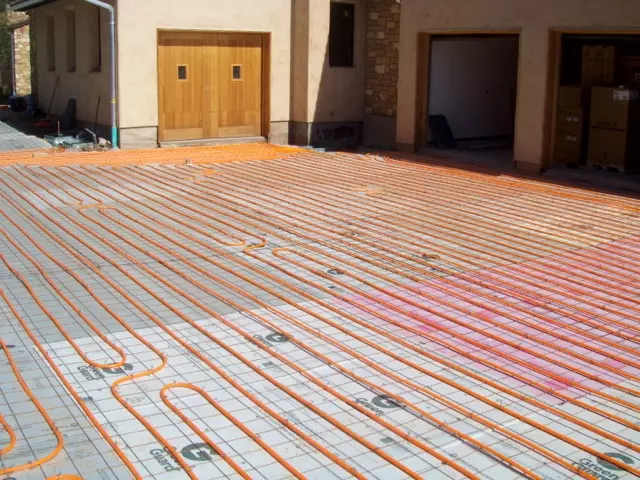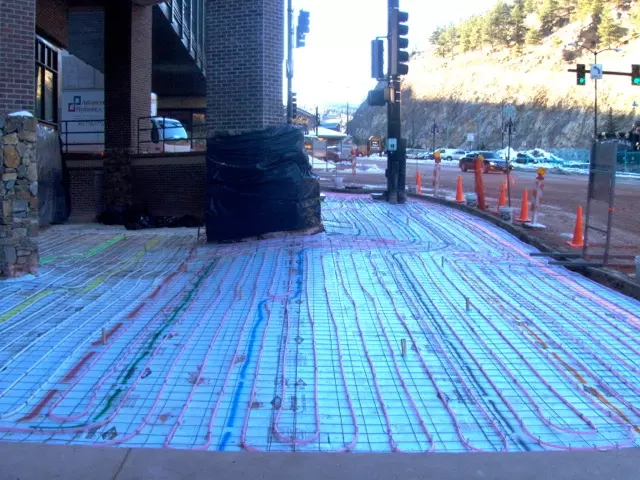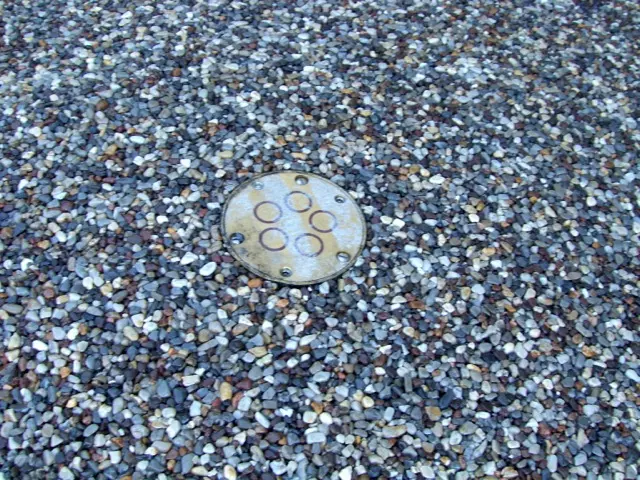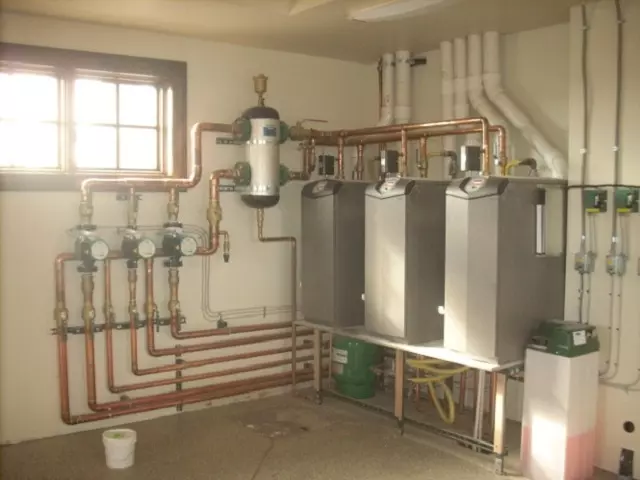Snow Melt Systems in Denver, CO.
Stop Slipping on the Ice – Install a Hydronic Snow or Ice Melt System!Automated hydronic snow melt keeps Denver driveways, walks, steps, and ramps clear—without plowing, salt, or constant scraping. Sensors detect temperature and moisture, pre-heating surfaces before ice forms and cycling only as needed to manage storms efficiently.
Hydronic Snow and Ice Melting
Hydronic snow and ice melting systems offer the highest level of convenience and safety, along with several other benefits. Our systems are designed to sense outdoor temperature and the presence of moisture. When conditions warrant, the system begins operation and stays ahead of the accumulation of snow and ice. This system is fully automatic and continues operation as long as necessary. Plowed banks are eliminated, along with their inherent undesirable consequences such as subsequent drifting and damage to landscape. Potential damage from frost action, deterioration due to salting, and physical damage.
Hydronic snow and ice melting has a long list of benefits, and high on the list is safety. The importance of safety cannot be understated. Slips and falls, vehicular accidents, and the potential liability exposure that accompanies them are greatly reduced or eliminated. Hydronic snow and ice melting can be very effectively used to melt snow and ice on all types of exterior areas. Safety, practicality, and effectiveness define the importance of snow melt systems to building owners and managers.
Applications include:
- Driveways and sidewalks
- Parking areas
- Steps
- Wheelchair access ramps
- Decks and patios
- Roofs
- Storefront entryways
- Parking garage ramps
- Loading docks
- Car washes
- Hospital emergency entrances
- Toll booth areas
- Security gate areas
Benefits of Hydronic Snow Melt
Safer access: fewer slips, falls, and liability risks
Clean look: no salt damage, piles, or refreeze ridges
Automatic control: runs when weather requires, not all day
Long service life when properly designed and maintained
Energy use rises with storm intensity and surface area; retrofits may require surface replacement and electrical capacity checks; smart controls and zoning help manage operating cost.
Applications for Snow Melt Systems
Driveways (steep/shaded), sidewalks, and entry stairs
ADA ramps, courtyards, patios, pool decks
Storefronts, loading docks, parking garage ramps, hospital/EMS bays
Roof drains and problem areas prone to ice
How It Works (Controls & Sensors)
Moisture/temperature sensors and a weather-responsive controller start the system ahead of freeze conditions. Zoning targets high-priority paths first; supply temps modulate to conditions for efficient operation.
Why Advanced Hydronics
Since 1989, our Denver team designs, installs, and services hydronic systems for residential and commercial sites. We right-size boilers/heat sources, specify controls, and stand behind maintenance.
FAQs
Which areas do you serve in the Denver metro?
We serve Denver, Aurora, Lakewood, Littleton, Centennial, Highlands Ranch, Arvada, Westminster, Boulder, and surrounding Front Range neighborhoods including Capitol Hill, Cherry Creek, Washington Park, and Sloan’s Lake. If you’re nearby, ask us to confirm coverage.
Do snow melt systems run all the time?
No. Weather sensors start and stop the system based on temperature and moisture, so it only runs when needed.
What surfaces can be heated?
Concrete, pavers, and select asphalt applications. We’ll verify construction details during design.
Can I retrofit an existing driveway?
Often yes, though it typically requires surface replacement. We review alternatives and zoning to control cost.
How much does it cost to operate?
It depends on area size, setpoints, and weather. Zoning, smart sensors, and efficient heat sources help control usage.
Do you service and repair existing systems?
Yes. We troubleshoot sensors, pumps, valves, and controls, and provide preventive maintenance.
Start Your Hydronic Project Today!
Plan your project before peak season. We’ll assess drilling access, roof/collector layout, heat pump and boiler options, controls, and budget.
Contact us at (303) 778-7772

